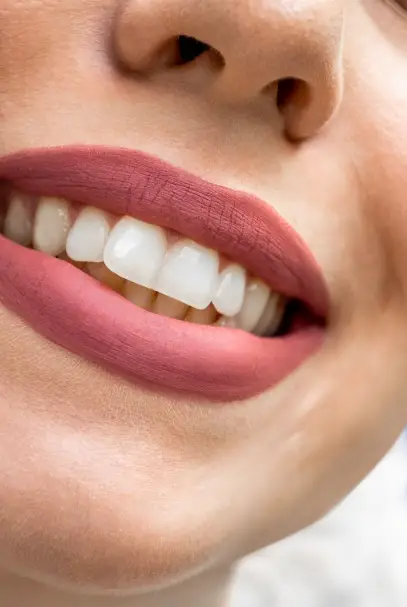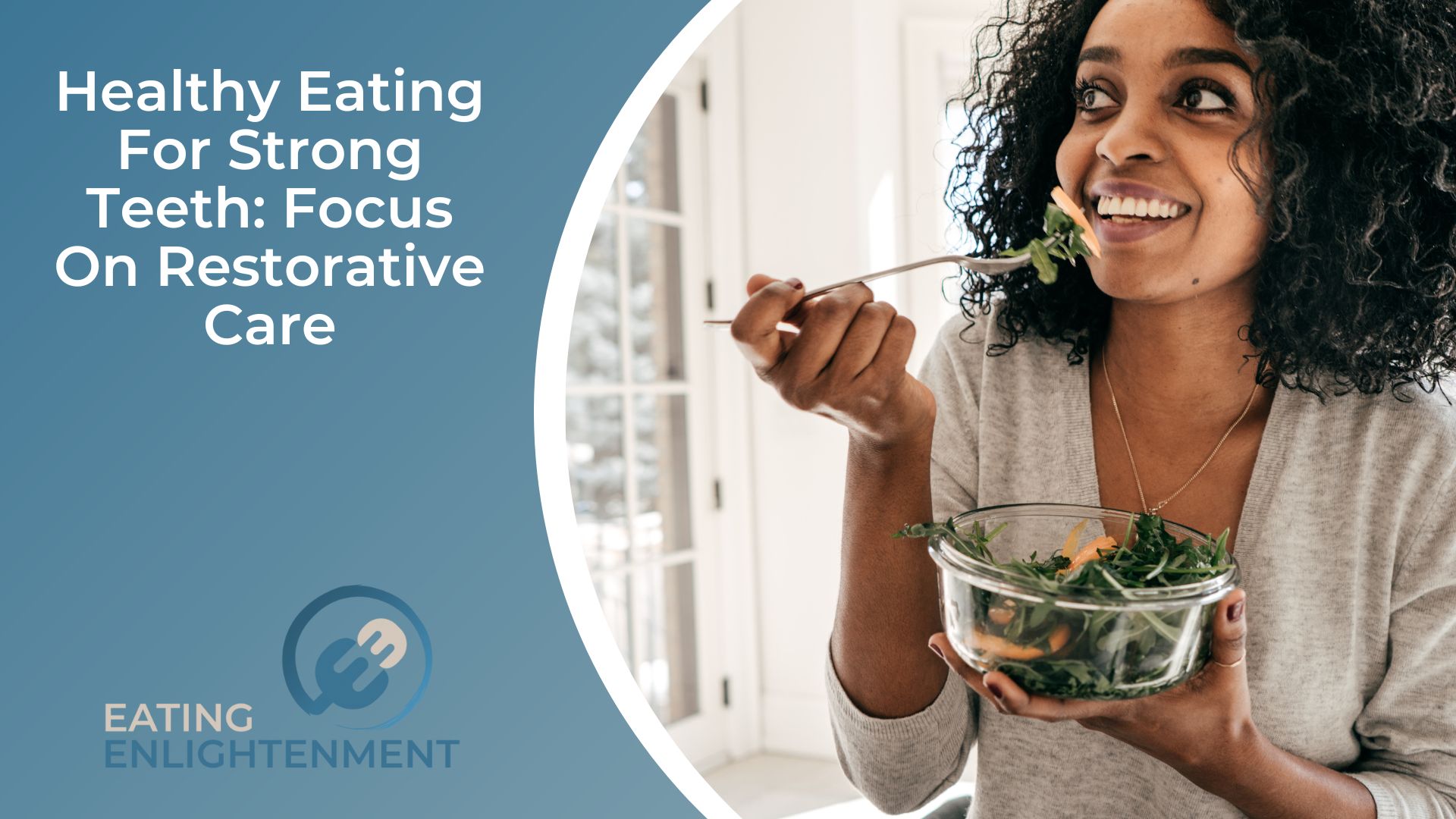Tooth decay and other oral health issues seem too commonplace these days. You may have dealt with cavities, gum disease, cracked teeth or dental repairs at one point or another. The agony and inconvenience of dental problems can negatively impact your quality of life. While brushing and regular dental care are crucial, surprisingly, what you eat significantly affects your oral well-being. After all, food provides the foundation for healthy teeth – or deteriorates them if you make poor choices.
This essential connection between nutrition and dental health often flies under the radar. However, a thoughtful diet can boost oral hygiene and empower restorative treatments to succeed over time. Conversely, eating the wrong foods contributes to new issues cropping up before you can heal existing ones. Understanding how diet affects your teeth will help you make smarter daily decisions. Minor, consistent alterations to your diet can reduce pain while preventing extensive dental work later.
In this post, you’ll uncover the vital link between nutrition and your oral health. You’ll learn which nourishing, tooth-friendly foods to focus on and which to moderate. You’ll also discover practical ways to modify your eating habits to boost your dental health for the long haul. Equipped with this knowledge of better dietary strategies, you can start supporting a dazzling smile from the inside out. There’s much to learn about improving dental health and reducing the causes of tooth discoloration through small nutritional changes. If you want to understand precisely how what lands on your plate impacts the state of your teeth, you need to keep reading to learn more.

The Connection Between Diet And Dental Health
What you eat and drink directly impacts oral health – and most people underestimate this link. The food you regularly consume lays the foundation for resistance against tooth decay and gum disease. It also influences how well you can bounce back after dental procedures, repairs or implants.
The nutrients (or lack thereof) in your meals and snacks feed the bacteria in your mouth. These bacteria produce acids that slowly disintegrate tooth enamel, causing cavities and decay over time. Things like sugar, excessive carbs and acidic foods exacerbate these issues. Conversely, foods abundant in enamel-fortifying vitamins and minerals can counteract damage from unhealthy eating habits.
Poor nutrition also impairs your saliva production. Saliva helps neutralize damaging acids and clears away food debris. But when your body lacks certain nutrients, it struggles to produce ample saliva – allowing decay-causing acids to persist on your teeth.
The takeaway is that healthy ingredients build strong teeth resistant to bacteria and decay. Meanwhile, unhealthy options set the stage for aggressive damage, painful issues and expensive dental work. Altering your long-term diet to nourish instead of eroding your teeth can save you from severe agony and hassle.
Foods For Restorative Care

What you eat matters when it comes to healing and maintaining dental restorations like crowns, bridges, implants or fillings. Focus on incorporating these repair-supporting foods:
- Dairy – Dairy products like milk, yogurt, and cheese contain calcium and vitamin D, crucial minerals for strong teeth. Calcium supports enamel strength, while vitamin D aids calcium absorption. The protein found in dairy also helps balance pH levels in the mouth. After dental work, getting plenty of these tooth-fortifying nutrients ensures repairs stay intact, and teeth remain mineralized and hardy.
- Leafy greens – Dark leafy greens like spinach and kale provide vitamin K, which assists with bone and wound healing. The vitamin C content in greens also stimulates collagen production for faster recovery from dental procedures like implants, extractions or gum surgery. Vitamin C protects tooth enamel from acidic erosion and bacterial damage while bolstering connective dental tissues.
- Citrus fruits – Citrus fruits are packed with vitamin C and antioxidants like bioflavonoids, which preserve connective tissues in gums and the jaw bone. Consuming citrus fruits after invasive dental treatments, therefore, quickens repair times. The vitamin C in citrus also induces collagen formation to mend injured oral tissue rapidly. Plus, citrus fruits help curb inflammation and reinforce enamel when enjoyed moderately.
- Salmon – Salmon contains anti-inflammatory omega-3s to mitigate painful swelling and irritation in the gums, mouth and jaw area post-dental surgery. It also delivers plenty of vitamin D and calcium to replenish lost minerals from drilling while enabling proper tooth remineralization. The nutrient density of salmon optimizes healing outcomes.
- Carrots – Carrots get chewed vigorously, which provides an intense cleaning action on teeth. This physical scrubbing helps dislodge debris, plaque and food particles from dental restorations and tooth surfaces. More importantly, though, carrots’ vitamin A precursor beta-carotene facilitates healthy saliva while forming a protective barrier on teeth. This vegetable maintains strong enamel and fast-tracks healing after dental procedures.
The nutrients from these whole foods support your body’s natural healing process while optimizing dental health. Incorporate them often for the best therapeutic outcomes.
Hydration And Oral Health
Drinking adequate water is non-negotiable for dental wellness. Proper hydration maintains healthy saliva flow in your mouth. Saliva washes away leftover debris and neutralizes acids that erode enamel. It also facilitates mineral redeposition onto teeth to strengthen enamel. Without sufficient hydration, your saliva production suffers – allowing bacteria and acids to wreak havoc.
Meanwhile, not drinking enough water causes dry mouth issues. Insufficient saliva allows plaque and bacteria to accumulate and flourish. Lack of water increases your risk of cavities and gum inflammation. Staying hydrated is vital for swishing away excess food particles. It also keeps your gums happily moisturized.
You must also consider what you sip throughout the day. Sugary sodas, fruit juices and sports drinks bombard teeth with enamel-eroding acids. Watch out for seemingly innocent beverages, too. Coffee, tea and even kombucha tend to be quite acidic as well. Over time, these popular drinks subtly damage enamel, too.
Whenever you consume any liquid besides water, swish some aqua afterwards. This counters and dilutes acids clinging to teeth. Hydrate primarily with regular, plain water to optimize oral health. This simple habit pays off enormously by preventing tooth decay and expensive dental repairs down the road.
Foods To Limit Or Avoid
While nutrient-dense whole foods build strong teeth, other options disintegrate and damage tooth enamel. Be mindful of these dietary culprits:
- Sugary foods – Candy, cookies, soda and even fruits like mango contain sucrose and fructose. These simple sugars feed decay-causing oral bacteria. Even minimal consumption catalyzes plaque production and acid formation.
- Sticky foods – Chewy candies, caramels, dried fruit, popcorn and peanut butter cling to teeth. They persistently bathe enamel in acids and provide bacterial food sources.
- Hard foods – Pretzels, nuts, seeds, hard candies, ice stress and fracture dental work. They also wedge into crevices, exacerbating decay.
- Acidic foods – Citrus fruits, tomatoes, vinegar and carbonated beverages contain erosive acids that deplete tooth minerals over time. Acidity also roughens enamel, increasing staining and cavities.
- Simple carbs – White bread, pasta, rice, and baked goods are broken down into simple sugars. These feed harmful bacteria, localizing acid formation on your teeth.
While sugary and acidic foods are detrimental, pay attention to sticky and hard foods. Limiting these supports restorations and shields enamel from slow erosive damage. Avoiding favorites like candy, soda or ice cream is easier said than done. If you can’t kick the sugar or cravings, there are tips online for managing these urges. Support your dental work by moderating problematic eating as much as possible. And don’t hesitate to seek motivational advice for getting your cravings under better control.
Practical Tips For Healthy Eating
Implementing better dietary strategies for your teeth doesn’t require overhauling your diet. Small, practical techniques can make a difference:
- Consume teeth-friendly foods first – Start meals with a salad, vegetables or other fibrous nibbles that scrub the teeth. Follow with a protein source before having sugary foods (if any) at the end.
- Swap simple carbs for complex – Choose whole grains like brown rice and quinoa instead of refined bread, cereal or crackers. These nourishing alternatives tame sugar spikes.
- Have dessert less frequently – Limit sugary treats to a few times per week rather than daily. This approach gives your mouth extended relief from acid attacks.
- Drink water with meals – Sipping water while you eat helps flush food particles and neutralize lingering acidic residues during digestion.
- Allow adequate chewing time – Resist scarfing down meals. Insufficient chewing causes larger boluses that adhere to dental restorations and grooves.
- Consume dairy as a snack – Eating yogurt, cheese or milk at snack time sustains enamel fortification between meals.
- Avoid brushing right after eating – Brushing too soon after acidic meals scrubs enamel in a weakened state. Wait 30-60 minutes.
- Limit coffee and tea – Restrict acidic drinks that erode enamel to 1-2 times daily, finishing them quickly.
- Stimulate saliva before eating – Chew sugarless gum right before a meal to activate protective saliva flow.
- Eat crunchy fruits and veggies – The abrasive fiber in options like carrots and apples clears debris and polishes teeth.
With some forethought and straightforward adjustments, you can painlessly improve your oral health through more thoughtful eating. Remember to consider how minor tweaks make a big difference over time!
Final Thoughts
What you eat has immense implications for your oral health – now and years later. The proper nutrients reinforce enamel and fuel dental restorations for longevity. Meanwhile, sugar, acids and carb-rich fare compromise tooth integrity and set the stage for issues.
Don’t take the mouth-diet connection lightly to avoid dental disasters. With some mindfulness of how nutrition and oral health intersect, you can eat your way to a healthy, dazzling smile built to last. Support good habits now, and avoid dental agony later.



